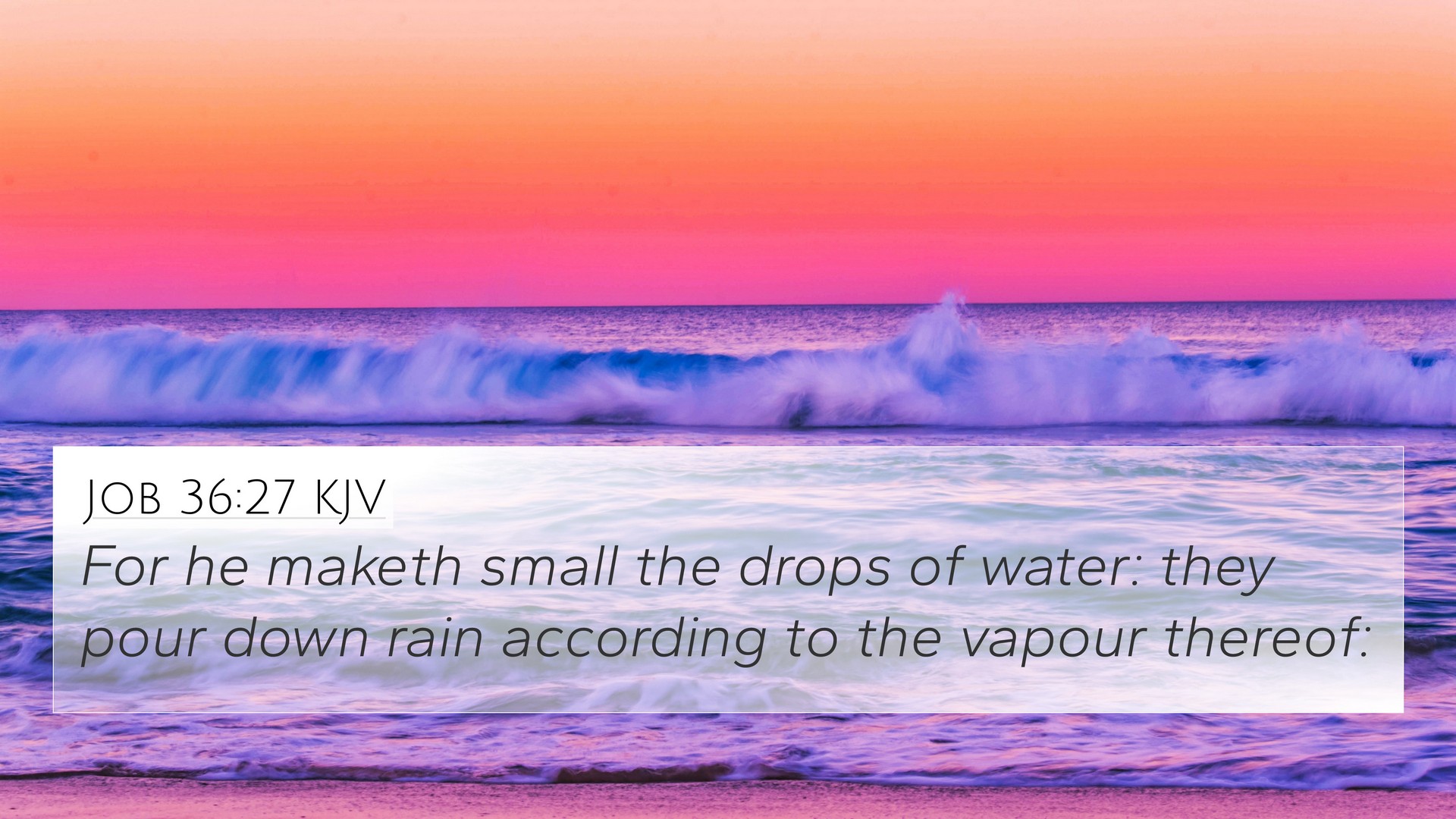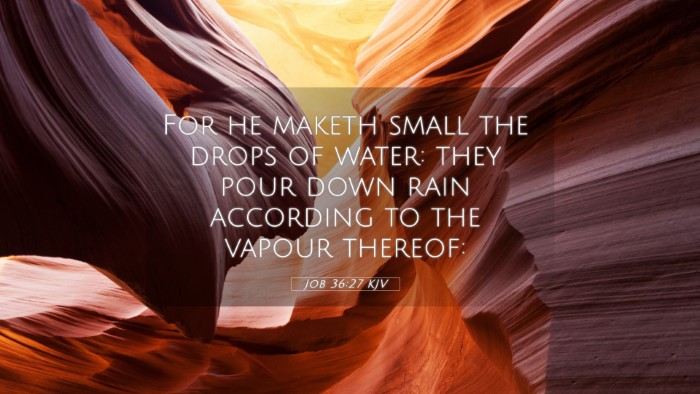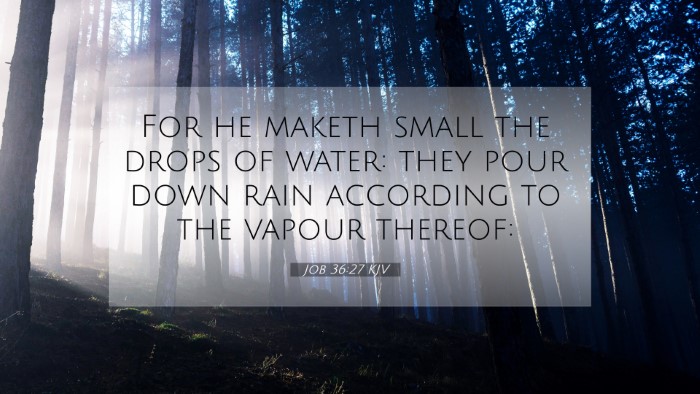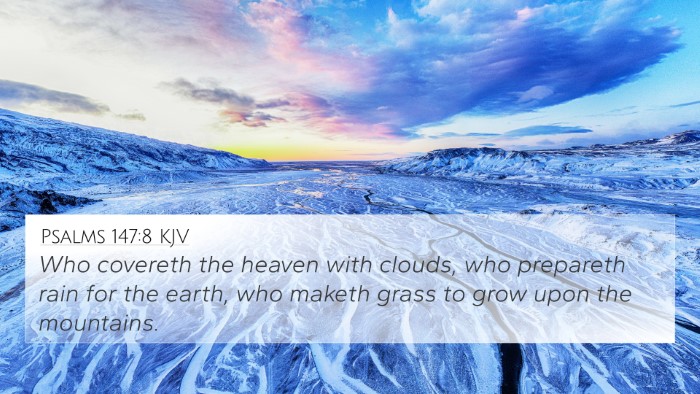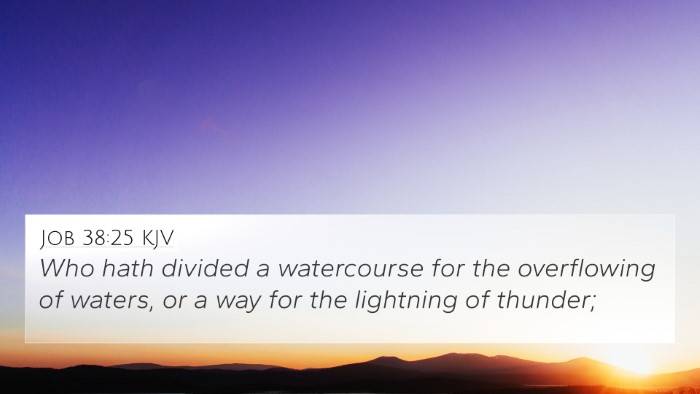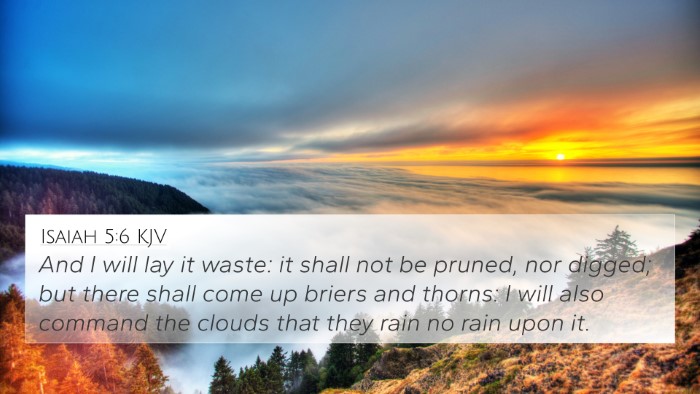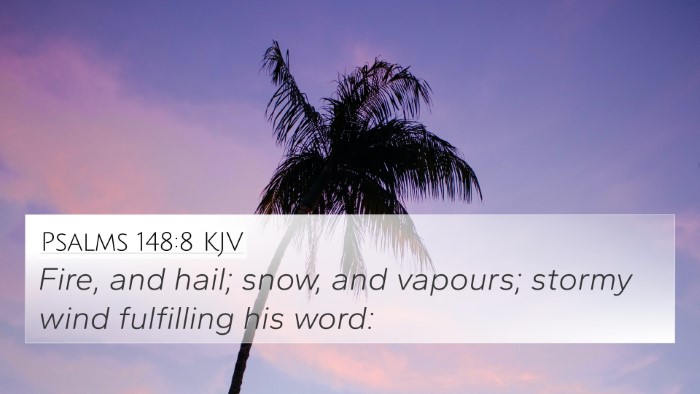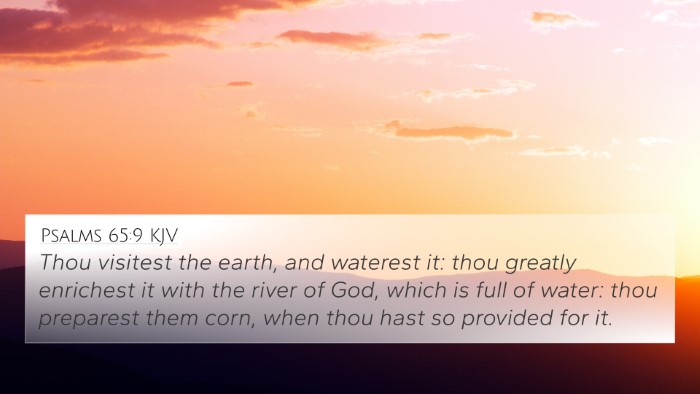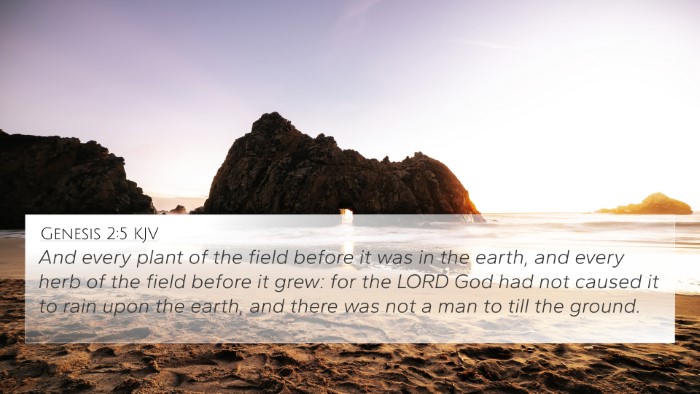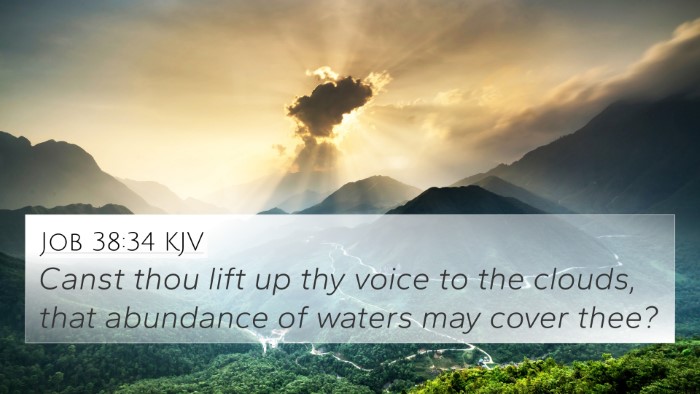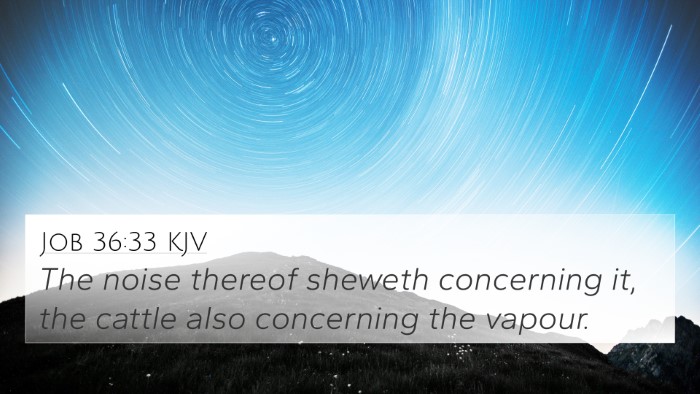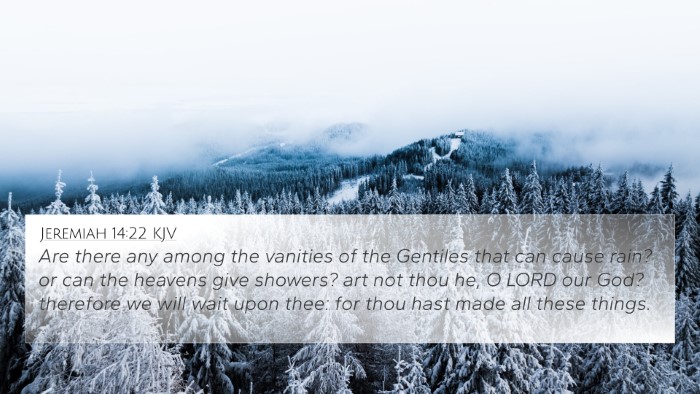Understanding Job 36:27
Job 36:27 states, "For He draws up the drops of water, which distill as rain from the mist".
This verse, situated in the poetic dialogues of Job, serves as a profound reflection on God's sovereignty over creation, particularly His control over natural phenomena, such as rain and water, which are essential for life.
Summary of Meaning
The essence of this verse highlights God's power in the natural world, signifying the divine wisdom inherent in the processes of creation.
Commentary by Matthew Henry emphasizes God's authority in creating and sustaining life through the natural cycles of the earth.
Albert Barnes underscores that this metaphor illustrates God's providence, reminding us of His ability to provide and sustain.
Theological Insights
-
Divine Providence:
Job 36:27 illustrates the concept of divine providence, as remarked by Adam Clarke, who elaborates on how God governs the elements of nature and ensures that water, a life-giving resource, is available to His creation.
-
Creation's Dependence on God:
Henry highlights that every drop of rain is a testament to God's benevolence and the continuous act of creation.
This reinforces the dependence of the created world on its Creator for survival.
-
Symbolism of Water:
In Biblical texts, water is often symbolic of life, cleansing, and the sustenance of spiritual and physical needs.
This verse, therefore, represents God's capability not only to provide physical sustenance but also spiritual nourishment.
Cross-References
When studying Job 36:27, various other scriptures come to mind that illustrate similar themes. Here are some Bible cross-references relevant to this verse:
- Psalms 147:8: "Who covers the heavens with clouds, who prepares rain for the earth, who makes grass to grow on the mountains."
- Isaiah 55:10-11: "For as the rain comes down, and the snow from heaven, and do not return there but water the earth, and make it bring forth and bud."
- Matthew 5:45: "For He makes His sun rise on the evil and on the good, and sends rain on the just and on the unjust."
- James 5:17-18: "Elijah was a man with a nature like ours, and he prayed earnestly that it would not rain; and it did not rain on the land for three years and six months. And he prayed again, and the heaven gave rain."
- Job 5:10: "He gives rain on the earth and sends water on the fields."
- Psalms 65:9: "You visit the earth and water it; You greatly enrich it; the river of God is full of water; You provide their grain, for so You have prepared it."
- Proverbs 3:20: "By His knowledge the depths were broken up, and clouds drop down the dew."
Exploring Connections Between Bible Verses
The connections between Job 36:27 and other scriptures invite a wider reflection on God's role as Provider and Sustainer.
Each of these verses contributes to a thematic understanding of how God interacts with creation, offering insights into His character and deeds revealed throughout scripture.
Thematic Bible Verse Connections
-
The Nature of God:
Understanding God's nature as provided in complimentary scriptures such as Psalms 147:8 strengthens the comprehension of Him as a nurturing figure who actively engages with His creation.
-
God's Sovereignty:
The sovereignty theme is prevalent in the referenced texts. The consistent control over natural elements emphasizes His omnipotence, challenging us to trust in His perfect management of our lives.
Conclusion
Job 36:27, when viewed together with its cross-references, portrays a vivid image of God's intimate involvement in the world through elements like rain and water.
From the commentaries, it is clear that an accurate understanding of God's provision can enhance our faith and trust in His continual care and guidance.
Tools for Bible Cross-Referencing
As believers study the scriptures, tools for Bible cross-referencing can enhance their understanding. Resources like Bible concordances and cross-reference guides serve as invaluable aids for those wishing to delve deeper into the interconnectedness of Biblical texts.
